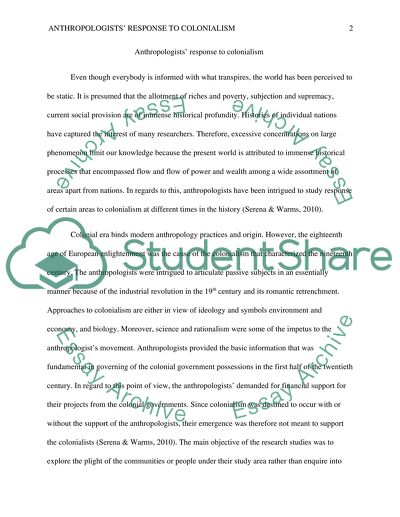Cite this document
(“How have anthropologists responded to colonialism in different Essay”, n.d.)
Retrieved from https://studentshare.org/anthropology/1435849-how-have-anthropologists-responded-to-colonialism
Retrieved from https://studentshare.org/anthropology/1435849-how-have-anthropologists-responded-to-colonialism
(How Have Anthropologists Responded to Colonialism in Different Essay)
https://studentshare.org/anthropology/1435849-how-have-anthropologists-responded-to-colonialism.
https://studentshare.org/anthropology/1435849-how-have-anthropologists-responded-to-colonialism.
“How Have Anthropologists Responded to Colonialism in Different Essay”, n.d. https://studentshare.org/anthropology/1435849-how-have-anthropologists-responded-to-colonialism.


